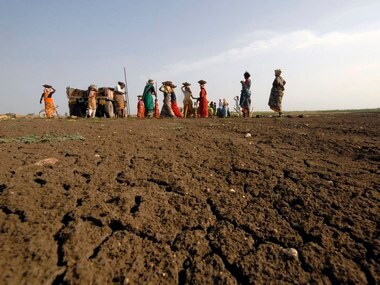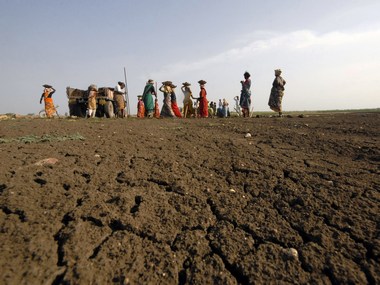So what does the Report on the State of Indian Farmers tell us that we don’t know already?
Didn’t we know that the condition of farmers is abysmal? Haven’t we read enough about farmers’ suicides?
Didn’t we know that farmers have to take up other work to supplement their income? Aren’t we all familiar with migrant labour returning to their villages during harvest time? And wasn’t this the logic behind the Mahatma Gandhi National Rural Employment Guarantee Scheme - to provide work to supplement incomes in rural areas?
Didn’t we know that - as in urban areas - the various sops and freebies doled out in the name of the small and poor farmer actually only benefit the large and rich farmers?
The report, which presents the findings of a survey conducted by Lokniti-Centre for the Study of Developing Societies (CSDS) for the Bharat Krishak Samaj, only provides statistical evidence for all that one knew about Indian farmers. (See details of the survey in this report .)
[caption id=“attachment_79023” align=“alignleft” width=“380”]  Low-skill jobs in labour-intensive sectors can rapidly absorb those coming out of the agriculture sector. Reuters[/caption]
But that does not reduce its significance. Instead, it should prompt the question - what is it reflective of and what is to be done about this?
One can anticipate the kind of responses the report will invite. Agricultural policy wonks will bemoan the neglect of agriculture and the growing role of the corporate sector in it and call for a reversal of whatever little liberalisation the farm sector has seen. With elections around the corner, politicians will promise more sops (in spite of the survey showing that a majority of the farmers are unaware of these sops and even lesser avail them).
Hardly anyone will point out that the problems the survey highlights are not so much the result of the crisis in agriculture (though that is a factor) as of the crisis in the non-farm sector. And that a paradigm shift is needed in agriculture-related policies.
As the share of agriculture in an economy falls (which is inevitable as an economy progresses) farm-related opportunities will shrink and farmers will look for alternatives. India cannot remain immune to this and the fact that 76 percent farmers want to quit farming and 61 percent want to move to cities for work doesn’t call for too much breast-beating.
What, instead, needs to be lamented is the lack of alternative avenues. India is perhaps unique in that a sector that accounts for just about 12 percent of the economy (agriculture alone) has 49 percent of the country’s workforce dependent on it. Sure, the share of agriculture in employment in rural areas is falling steadily and that of non-agricultural activities is increasing, but the structural transformation in employment is not keeping pace with the structural transformation of the economy.
According to a January 2014 Crisil Insight report, while employment elasticity (the percentage increase in employment for every percentage point increase in GDP) in agriculture fell from 1.54 in the period between 1999-2000 and 2004-05 to minus 0.53 in the period between 2004-05 to 2011-12, it also fell in the non-agriculture sector (industry and services) from 0.52 to 0.38 in the same period. No wonder, as the survey shows, one in 10 farmers say their family often had to remain without food. If they could get other jobs, their families wouldn’t have had to remain hungry.
There’s also a problem in the way India has progressed from an agriculture-led economy to a services-led economy, skipping the conventional industry-led economy transition stage. The fact that services account for 60 percent of the economy, but just 27 percent of employment, shows that this sector is not able to absorb those whom agriculture is not able to provide jobs to. (Construction is an exception, which is seeing the most rapid growth in employment.) So clearly there is a skill or competence mismatch.
This mismatch will be much less in manufacturing and related activities, which become the first stop for those moving out of agriculture. Low-skill jobs in labour-intensive sectors can rapidly absorb those coming out of the agriculture sector.
UNIDO’s Industrial Development Report 2013 lists food and beverages, textiles and wearing apparel as sectors that provide huge employment gains for countries at lower levels of per capita income. These are also the sectors the Planning Commission has identified for rapid employment growth in India along with leather and footwear and gems and jewellery.
But industry is not filling the gap. The employment elasticity in industry fell from 0.78 to 0.57 between 1999-2005 and 2005-2012, sharper than the fall in services from 0.35 to 0.26. In the services sector, construction can be a huge employment generator for those in the low-skill bracket.
What needs to be done to give industry, especially manufacturing, a fillip is well known. It is the usual laundry list of labour law reforms, infrastructure (which can boost employment in construction), easier finance and a business-friendly environment, especially for the small and medium enterprises. There has to be a single-minded focus on doing all this. This is a more sustainable way of providing alternative employment than MNREGA (which was only meant to be a way of alleviating rural distress and not a permanent entitlement).
Does this mean agriculture should be neglected and left to fend for itself? Certainly not. Growth rates in agriculture have to increase and so does profitability. But this does not mean a return to the heavy-handed interventionist approach favoured till now, even as public investment shrinks. There is need to step up public investment in agriculture - irrigation, R&D, infrastructure.
And there is also need to unshackle agriculture - the largest private sector which is also the most regulated. Only a combination of the two will increase profitability of the sector and make it attractive to farmers.
These are not issues that lend themselves to prevarication any more. We don’t have that luxury. A paradigm shift in policy approaches to both agriculture and industry are the need of the hour. That is how one should read the findings of the report.
Seetha is a senior journalist and author


)
)
)
)
)
)
)
)
)



